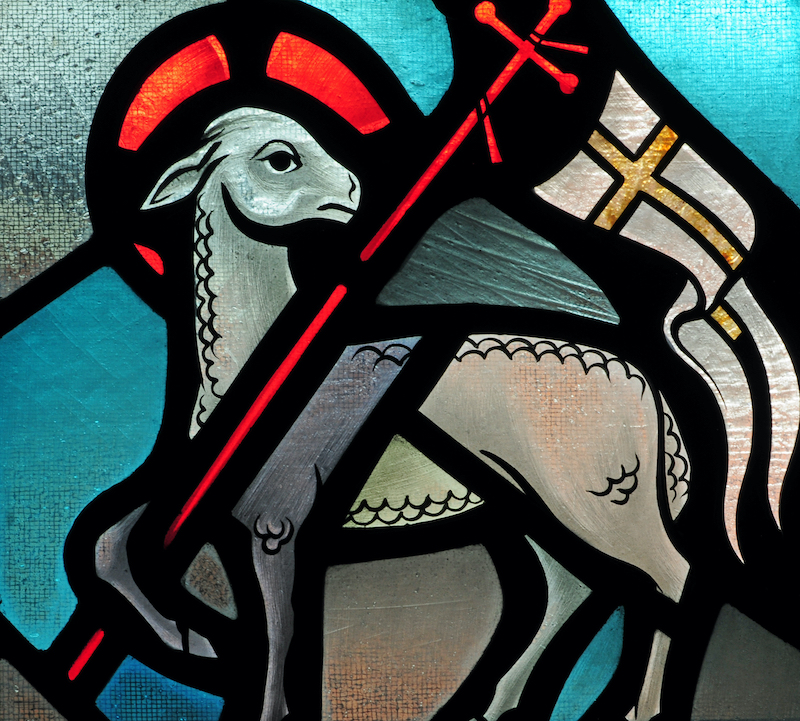Nelson Mandela said, “a real leader uses every issue, no matter how serious and sensitive to ensure that at the end of the debate we should emerge stronger and more united than ever before.” Our mission as a church is to unite people — “to restore people to unity with God and each other in Christ.” The Episcopal Church, like the nation, raises up its leadership through a democratic process. In fact, our polity closely reflects that of our nation’s. There is an executive branch represented by the Presiding Bishop, and a legislative branch, represented by the House of Bishops and the House of Deputies, a body of elected priests, deacons and lay persons. At the parish level, lay leadership is raised up through the election of Vestry members who serve for three year terms. In January, St. Paul’s will hold its annual meeting at which time we will elect Vestry members and delegates to the Diocesan Convention. When we elect Vestry members, we are not voting for Republicans or Democrats, or third party candidates and, thank goodness, there are no campaign speeches, fundraisers, or political ads. Instead, there is trust and faith that the Holy Spirit will guide our hearts and minds to elect leaders who will faithfully exercise their responsibilities in service to the mission of the Church.
The number of Vestry members a parish elects is determined by the congregation’s membership. Most vestries have 9, 12, or 15 members. St. Paul’s has a 12 member Vestry. Vestry members are elected for three year terms. No Vestry member who has served more than 12 months of an elected or unexpired term shall be eligible to serve again on the Vestry until a period of one year has elapsed. In January, St. Paul’s will elect five new members to the Vestry — four to replace retiring members, and one to serve two years of an unexpired term of a Vestry member who has resigned. In order to qualify to be elected to the Vestry, a candidate must be a baptized, confirmed, communicant of the parish, 16 years of age or older. A communicant is someone who has received Communion in Church at least three times during the calendar year (not a high bar).
So what does the Vestry do? The Canons (the laws of the church) read, “the vestry shall be agents and legal representatives of the Parish in all matters concerning its corporate property and the relations of the Parish to its Clergy.” In many ways, the Vestry functions like a Board of Trustees. The Vestry, with the approval of the Bishop, calls a new Rector when there is a vacancy. You may have heard that the Vestry is in charge of the business side of things, and the rector oversees the spiritual side of things. This, in fact, is not really accurate. The Vestry collaborates with the Rector in setting a vision for ministry, identifying needs, and implementing a mission strategy. Likewise, the Rector is involved with business decisions, and sometimes is a signatory for legal documents. The Rector also has the authority to hire and dismiss staff members. The Vestry develops a budget to support the work of mission and ministry and helps to encourage the people of God to use their time and talents in a variety of targeted ministries (for example, Christian Formation, Pastoral Care, Community Outreach, Facilities Management) which give glory to God and build up God’s Kingdom.
The Rector and Vestry work together as they seek to live out the mission of the church and reach out to all with the reconciling love of Jesus Christ. Vestry service is a mutual commitment to God and to the people of God. Vestry service is a ministry. Generally, the retiring members of the Vestry serve as a nominating committee for new Vestry members, but any member of the church may nominate someone to serve on the Vestry so long as they meet the qualifications specified in the canons. As we implement the Strategic Plan, it would enhance our effectiveness to nominate some folks who have particular gifts in those areas: Facilities, Financial Stewardship, and Human Resources. There is no litmus test, but Neal Michell in his book, Beyond Business as usual (Vestry Leadership Development) suggests that potential Vestry members are those who exhibit these four qualities.
1. Followers of Jesus
2. Learning and teachable
3. Continually looking for ways to expand the reach of the church
4. Fostering faith that brings God’s preferred future into present reality
Keep the Vestry and its work in your prayers. Give thanks to its members, and pray for those who will be elected to the Vestry that they may continue the good and faithful work of leadership. John Quincy Adams said, “if your actions inspire others to dream more, learn more, do more, and become more, you are a leader.”
Be safe. Stay patient. Keep the faith!
Peace,
Ray Hanna

